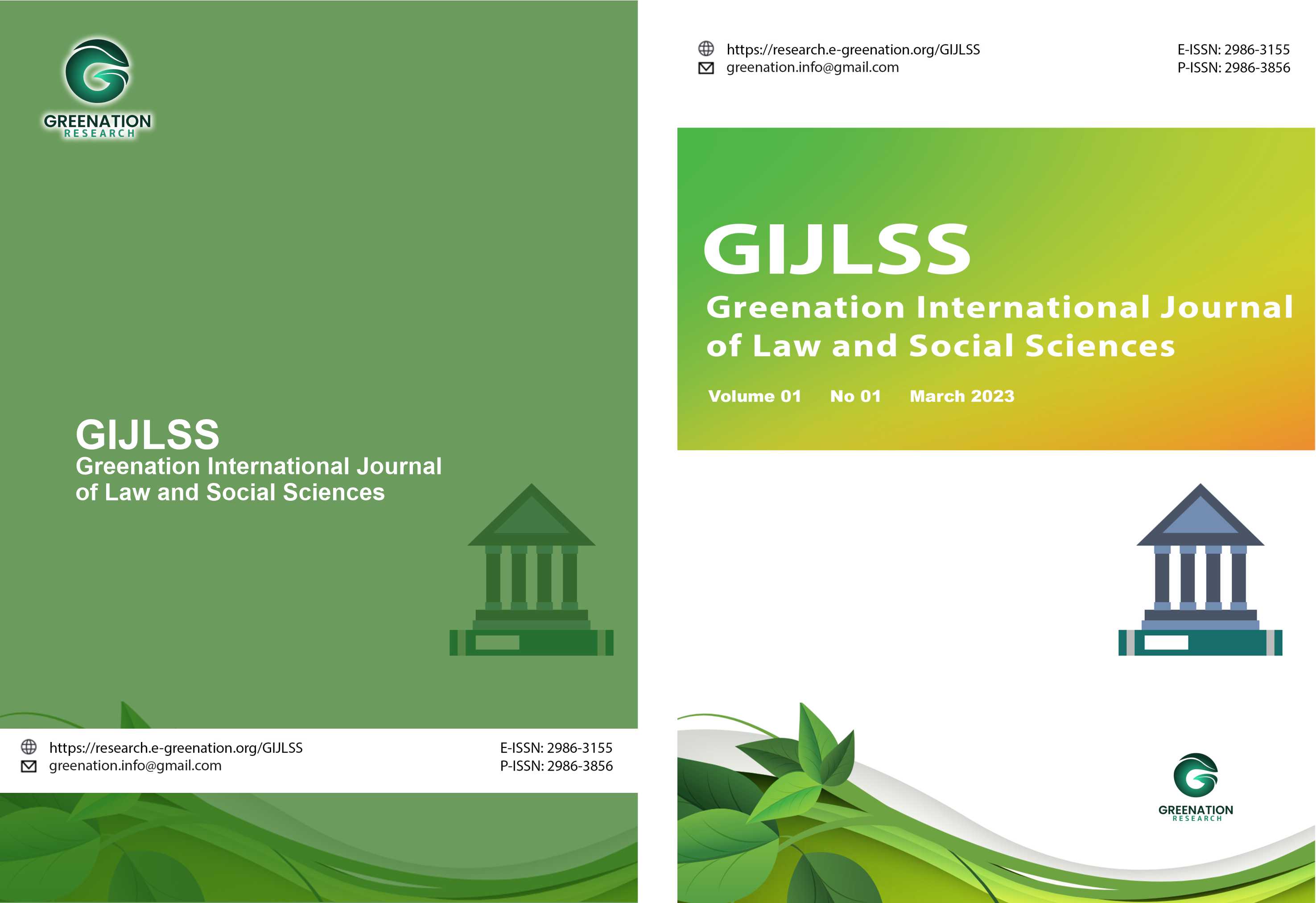The Dualism of Judicial Authority in Handling Abuse of Power by Government Officials Between the Administrative Court and the Corruption Criminal Court
DOI:
https://doi.org/10.38035/gijlss.v3i2.422Keywords:
Judicial Dualism, Abuse Of Power, Corruption Court, Legal CertaintyAbstract
The dualism of judicial authority in addressing abuse of power by government officials represents a critical issue within Indonesia's legal system. Abuse of power may be prosecuted in two distinct legal domains: administrative law, under the jurisdiction of the State Administrative Court (Pengadilan Tata Usaha Negara/PTUN), and criminal law, handled by the Corruption Court (Pengadilan Tindak Pidana Korupsi/Tipikor). The authority of the Administrative Court is grounded in the Administrative Governance Law, which allows government officials a degree of discretion in decision-making. Conversely, the Corruption Court prosecutes abuse of power as a form of corruption based on the Anti-Corruption Law. The overlapping jurisdictions of these two judicial bodies raise several legal challenges, including uncertainty in law enforcement mechanisms, the potential for conflicting rulings, and the risk of criminalizing officials who act within the bounds of administrative discretion. This study aims to analyze the concept of abuse of power from both administrative and criminal law perspectives, examine the respective jurisdictions of the Administrative Court and the Corruption Court in such cases, and identify the legal issues that arise from this dualism. A normative juridical method is employed, incorporating statutory (statute approach), conceptual, and comparative approaches. The statute approach examines the legal norms governing the jurisdictions of PTUN and Tipikor, while the conceptual approach explores legal theories related to abuse of power. The comparative approach analyzes how similar cases are handled in other jurisdictions. This research seeks to contribute to academic discourse by providing a deeper understanding of the legal dilemmas caused by dual judicial authority and proposing normative solutions to ensure legal certainty within Indonesia’s judicial system.
References
Akbar, M. K. (2021). Peran Peradilan Tata Usaha Negara Dalam Mewujudkan Pemerintahan Yang Baik. "Dharmasisya” Jurnal Program Magister Hukum FHUI, 1(1), 16.
Al Hafis, R. I. (2017). Abuse of power: Tinjauan terhadap penyalahgunaan kekuasaan oleh pejabat publik di Indonesia. Publika: Jurnal Ilmu Administrasi Publik, 3(1), 80-88.
Anggoro, F. N. (2024). Ius Constituendum Harmonisasi Kontrol Yudisial Terhadap Penyalahgunaan Wewenang Pejabat Pemerintahan. Jurnal Rechts Vinding: Media Pembinaan Hukum Nasional, 13(1).
Ar, A. M. (2024). Peran Niat (Mens rea) dalam Pertanggungjawaban Pidana di Indonesia. Jimmi: Jurnal Ilmiah Mahasiswa Multidisiplin, 1(3), 240-252.
Ardiansyah, A. (2022). Hukum Administrasi Negara. Yogyakarta: Deepublish.
Arijanta, M. S. (2022). Peninjauan Hukum Administrasi Negara Dalam Penyalahgunaan Wewenang Barang/Jasa Pemerintah. Wacana Paramarta: Jurnal Ilmu Hukum, 21(3), 77-86.
Aritonang, D. M. (2021). Kompleksitas Penegakan Hukum Administrasi dan Pidana di Indonesia. Jurnal Legislasi Indonesia, 18(1), 45-58.
Barhamudin, B. (2019). Penyalahgunaan Kewenangan Pejabat Pemerintahan Dan Ruang Lingkupnya Menurut Undang-Undang Administrasi Pemerintahan. Solusi, 17(2), 175-192.
Baseno, O. R. (2024). Harmonisasi Kewenangan Mengadili Antara Pengadilan Tindak Pidana Korupsi dan Pengadilan Tata Usaha Negara Dalam Menilai Ada Atau Tidaknya Penyalahgunaan Kewenangan. Media Hukum Indonesia (MHI), 2(2).
Bujung, A. R. (2023). Penerapan Hukum Atas Penyalahgunaan Wewenang Oleh Pejabat Pemerintah Ditinjau Dari Undang-Undang No 30 Tahun 2014 Tentang Administrasi Pemerintahan. Lex Administratum, 11(1).
Danil, E. (2021). Korupsi: Konsep, Tindak Pidana Dan Pemberantasannya. Depok: PT. RajaGrafindo Persada.
Dewi, A. (2019). Penyalahgunaan wewenang dalam perspektif tindak pidana korupsi. Jurnal Rechten: Riset Hukum Dan Hak Asasi Manusia, 1(1), 24-40.
Jiwantara, F. A. (2022). Konsep Penyalahgunaan Wewenang dalam Perspektif Hukum Administrasi di Indonesia. Jurnal Indonesia Sosial Sains, 3(2), 468918.
Rizkyta, A. P. (2022). Penyalahgunaan wewenang berdasarkan pengadilan tata usaha negara dan pengadilan tindak pidana korupsi. Jurnal Esensi Hukum, 4(2), 131-138.
Saiful, S. T. (2021). Kebijakan Hukum Pidana Mengenai Tindak Pidana Penyalahgunaan Wewenang Dalam Pemilihan Kepala Daerah. Journal of Lex Generalis (JLG), 2(2), 754-769.
Silalahi, D. M. (2020). Kompetensi Peradilan Tata Usaha Negara Terhadap Pengawasan Penyelenggaraan Pemerintahan Ditinjau Dari Perluasan Asas-Asas Umum Pemerintahan Yang Baik Pasca Berlakunya Undang-Undang Nomor 30 Tahun 2014 Tentang Administrasi Pemerintahan. Jurnal Komunikasi Hukum (JKH), 6(1), 50-63.
Susanto, S. N. (2020). Konsep Kekuasaan Pemerintahan Dalam Perspektif Hukum Administrasi. Administrative Law and Governance Journal, 3(4), 647-660.
Syamsuddin, A. R. (2020). Pembuktian Penyalahgunaan Wewenang Dalam Perkara Tindak Pidana Korupsi Pengadaan Barang dan Jasa. Jambura Law Review, 2(2), 161-181.
Usman, L. (2021). PENJATUHAN SANKSI TERHADAP PEJABAT PEMERINTAHAN YANG TIDAK MELAKSANAKAN PUTUSAN PERATUN. Jurnal Hukum Progresif, 9(2), 99-110.
Yuslim. (2022). Hukum acara peradilan tata usaha negara. Jakarta: Sinar Grafika.
Downloads
Published
How to Cite
Issue
Section
License
Copyright (c) 2025 Mardiyanti Mardiyanti, Abdullah Sulaiman

This work is licensed under a Creative Commons Attribution 4.0 International License.
Copyright :
Authors who publish their manuscripts in this journal agree to the following conditions:
- Copyright in each article belongs to the author.
- The author acknowledges that the Greenation International Journal of Law and Social Sciences (GIJLSS) has the right to be the first to publish under a Creative Commons Attribution 4.0 International license (Attribution 4.0 International CC BY 4.0).
- Authors can submit articles separately, arrange the non-exclusive distribution of manuscripts that have been published in this journal to other versions (for example, sent to the author's institutional repository, publication in a book, etc.), by acknowledging that the manuscript has been published for the first time at GIJLSS.























